News from 2021-03-15 / KfW Development Bank
Niger: Conquering hunger and defying climate change
More yields through increased water availability and better small-scale irrigation infrastructure - Second project phase ceremonially opened at the dam site in Kaora-Foga.
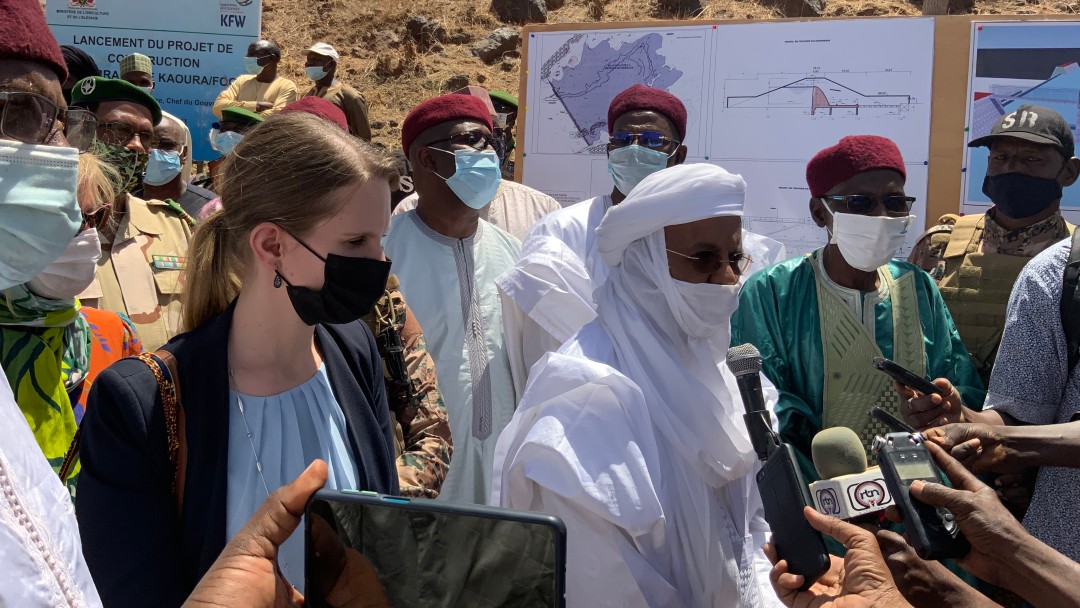
The Republic of Niger is an agricultural state. More than 80% of the Nigerien population live from agriculture, which, however, is mostly practised traditionally and with little efficiency. By expanding small-scale irrigation infrastructure, agricultural yields can be increased significantly, as shown by KfW's project entitled "Promoting small-scale irrigation and food security". Because it was so successful, KfW Development Bank is now financing a second phase with EUR 43 million on behalf of the German Federal Ministry for Economic Cooperation and Development (BMZ). The new project phase was ceremonially opened by the Prime Minister of Niger, Brigi Rafini, in the Tahoua region on 8 March 2021.
Agriculture in Niger could be much more productive than it currently is. Although a large part of the population lives from it, it falls short of its potential. This is mainly due to the frequent lack of infrastructure for water retention and irrigation. In addition, the low fertility of the soils, heavy pest and disease pressure, as well as farming methods that are not very sustainable or productive, have an aggravating effect on the agricultural production of small farmers. Not only the production, but also the processing and marketing of agricultural products is poorly developed.
In addition, precipitation levels fluctuate even more than before due to climate change; extreme weather events such as droughts or floods are on the increase. On the one hand, there is a lack of water, on the other hand, it washes out the fields during heavy rainfall or runs off unused. Both have a negative impact on the yields of small farmers.
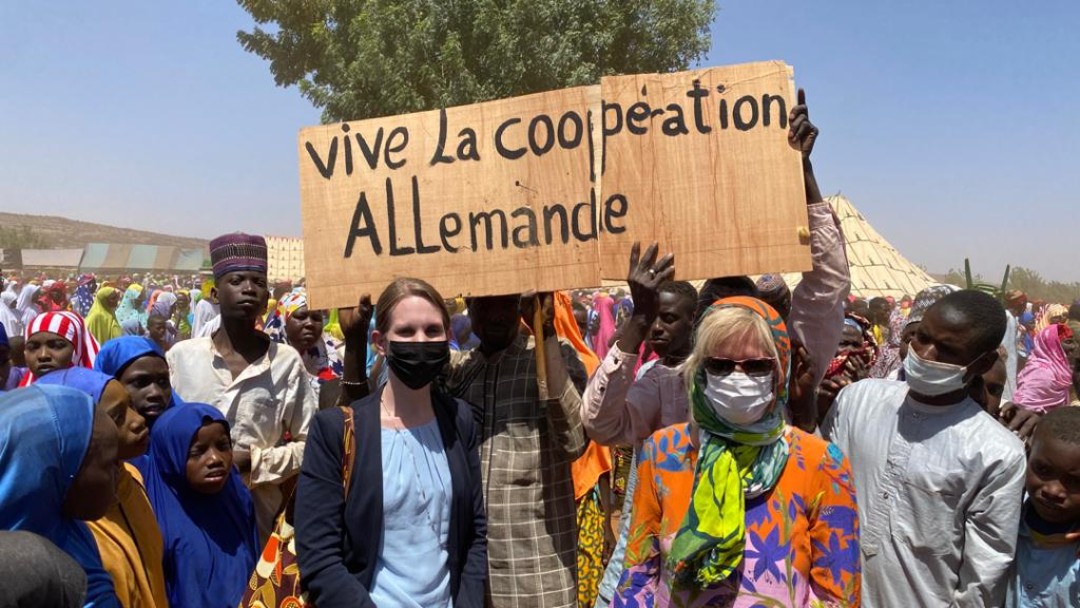
Improved food security through increased cereal and vegetable production
A KfW project in the regions of Agadez, Tahoua and Tillabéri shows that there is another way. There, since 2017, invert sills to raise the groundwater level, wells and small irrigation perimeters have been built, among other things. Now water is available all year round, so that vegetables and cereals can be grown even in the dry season and water is available for livestock.
This has significantly increased the average cultivated area of irrigated farmers. In addition, they can now plant and harvest up to three times a year instead of once. In the cultivation of tomatoes and potatoes, for example, yields have increased significantly: At the project sites in the Tahoua region, tomatoes were harvested around 84% more and in the Tillabéri region, small farmers benefiting from the project increased their potato yields by around 83%. This makes a big difference in a country where part of the population regularly goes hungry.
Only a fraction of potentials used so far
According to estimates, almost 11 million hectares of cultivable land could be used for agricultural purposes by expanding the irrigation infrastructure in Niger; currently, this is only happening on just under 128,000 hectares and thus only on about 1.2 percent of the possible area. Increasing this figure to 5 percent in the next few years is a priority goal of the Niger government. This is why KfW, on behalf of BMZ, is now financing a second phase of the project entitled "Promotion de la Petite Irrigation et de la Sécurité Alimentaire (PISA)". The president of the Sabara user group in the municipality of Tajaé comments: "We already feel the decrease in the migration rate, the diversification of food as well as increased numbers in school attendance. Given the interest and enthusiasm among the people, we are happy that the programme will be expanded."
Similarly to PISA I, the aim is to improve the availability of water through small-scale construction measures, to expand irrigation areas and, at the same time, to finance the construction of cattle troughs, storage sheds and tracks to the nearest markets. Erosion control is also one of the many measures that, taken together, should give Nigerien agriculture a modernization boost. They are not selected at the green table, but through a participatory application process in which communities and user groups can submit applications for funding. Regional selection committees, which also include civil society actors, decide according to social, ecological, technical and economic criteria which of the applications received are worthy of funding. This ensures that the changes really reach those who need them most: small farmers. In PISA I, 1,218 applications were submitted, of which a total of 193 applications could be funded. In the wake of the second phase, a large part of the applications that have not yet been served can now be implemented.
Creating perspectives
Around 460,000 people have benefited from the infrastructure provided under PISA I. At the end of the second phase, which is scheduled to run until 2025, many Nigerien smallholder farmers will also be able to harvest and take in more, despite all the climatic changes caused by global warming. With regard to the Kaoura-Foga dam site, where the opening ceremony of the second phase of the project took place, Brigi Rafini, the Prime Minister of Niger, emphasised that in the course of the dam construction, water availability and, related to that, agricultural production will be significantly increased. This, in turn, will have positive effects on local economic development and also job retention and creation. Similar impacts can also be achieved at the numerous other PISA 2 project sites. This is also of great importance because some project sites are located in security-critical areas where there has been a lack of promising prospects so far. The PISA 2 measures open up entirely new development opportunities for the local population.

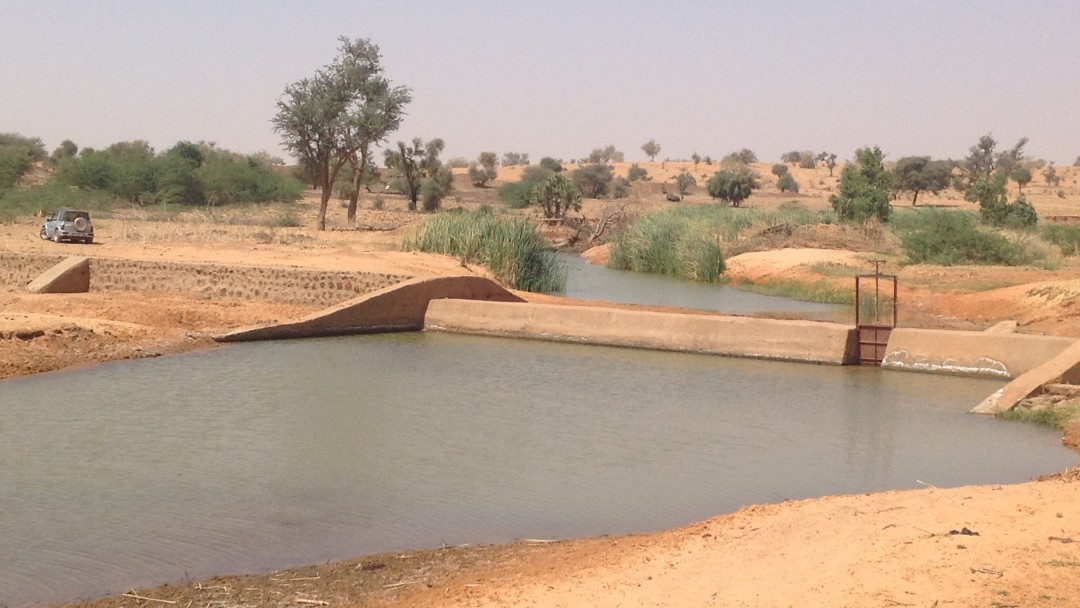
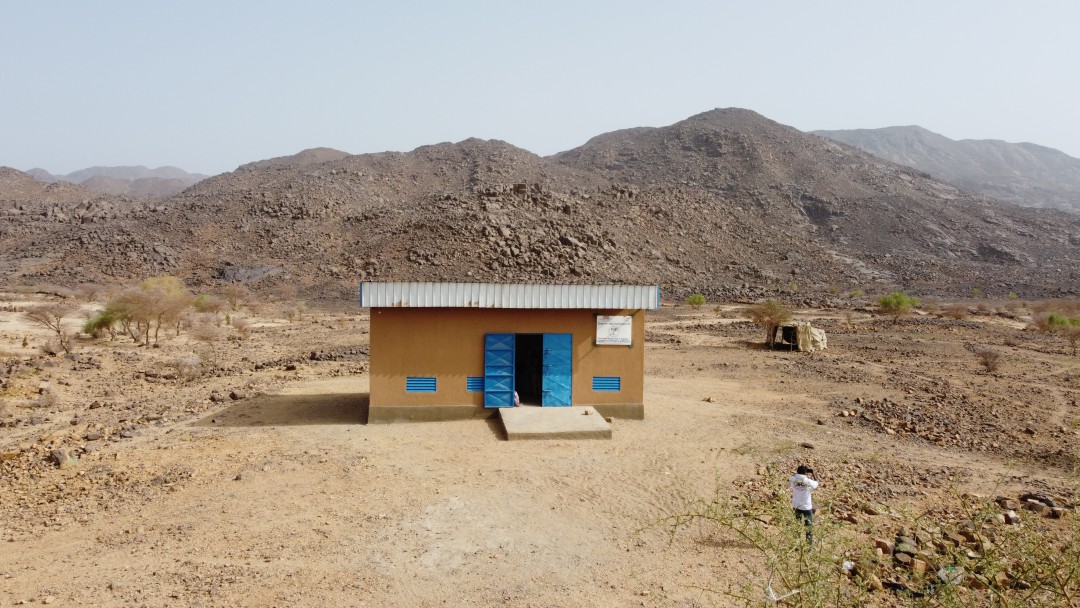
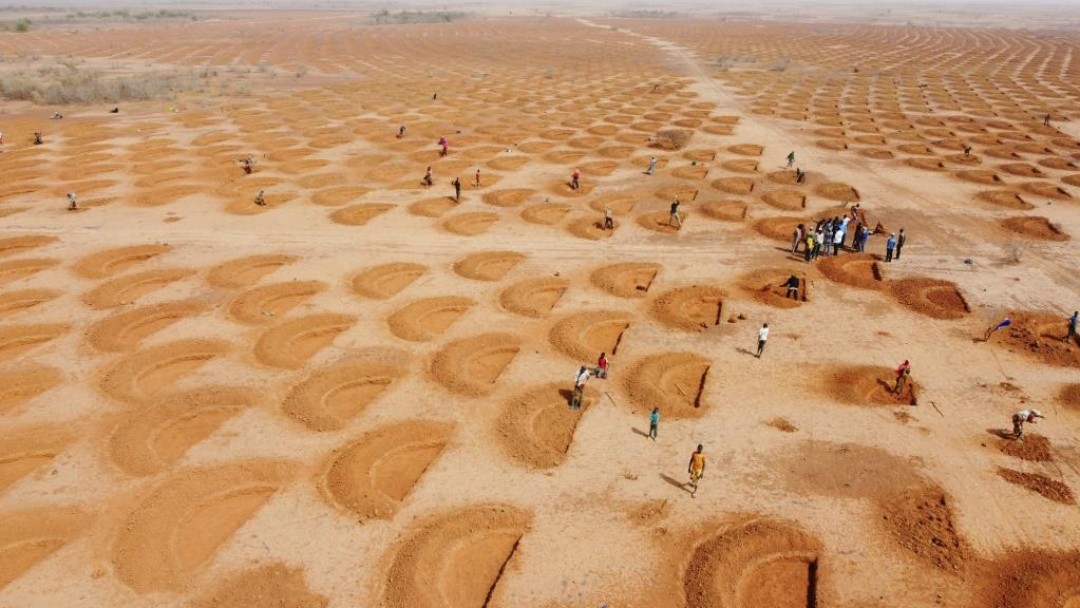
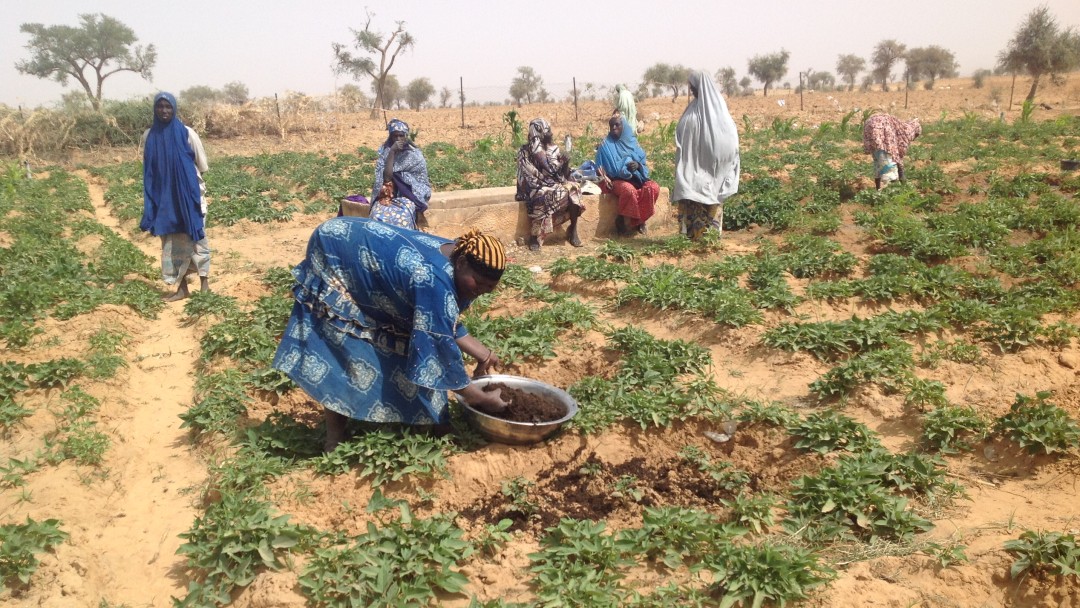
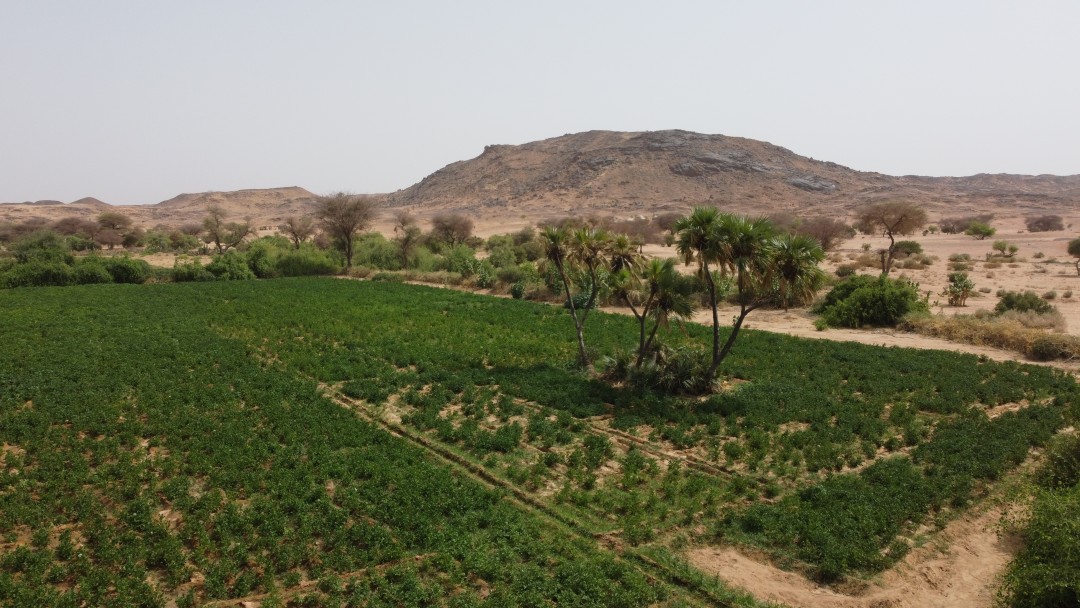
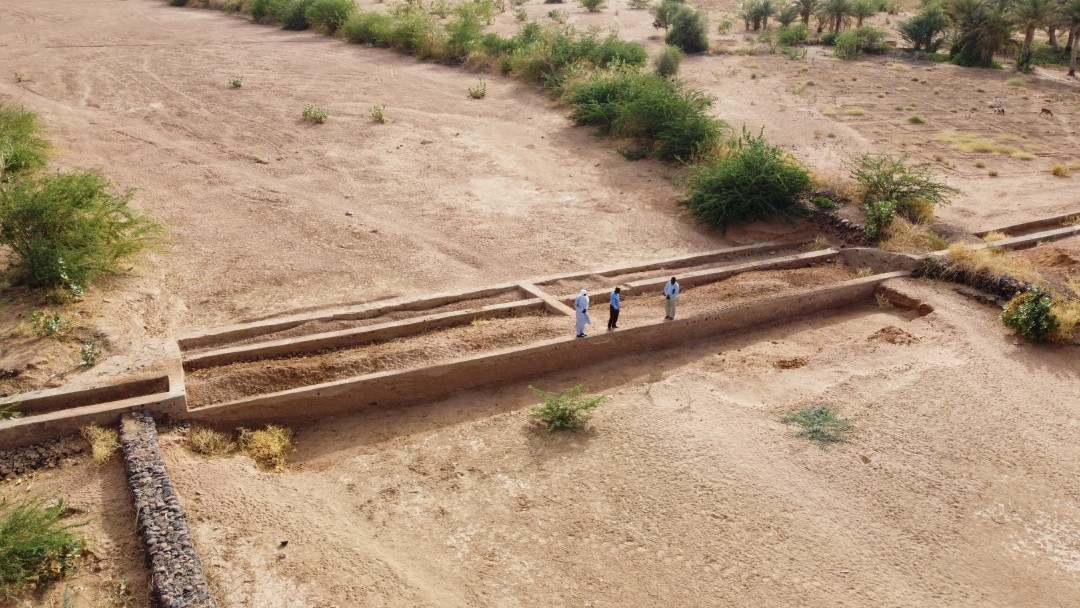
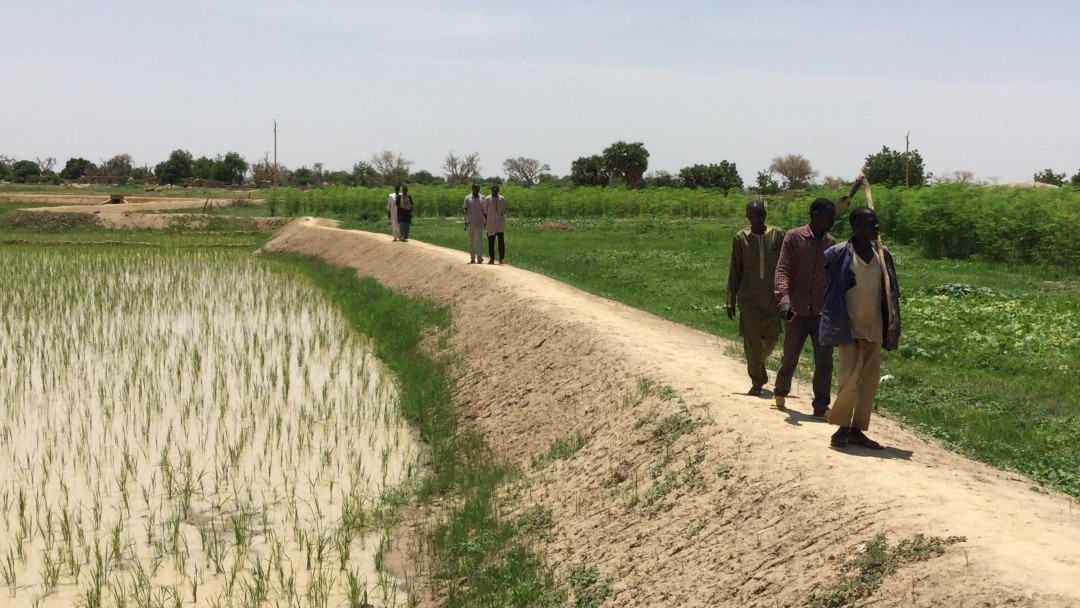
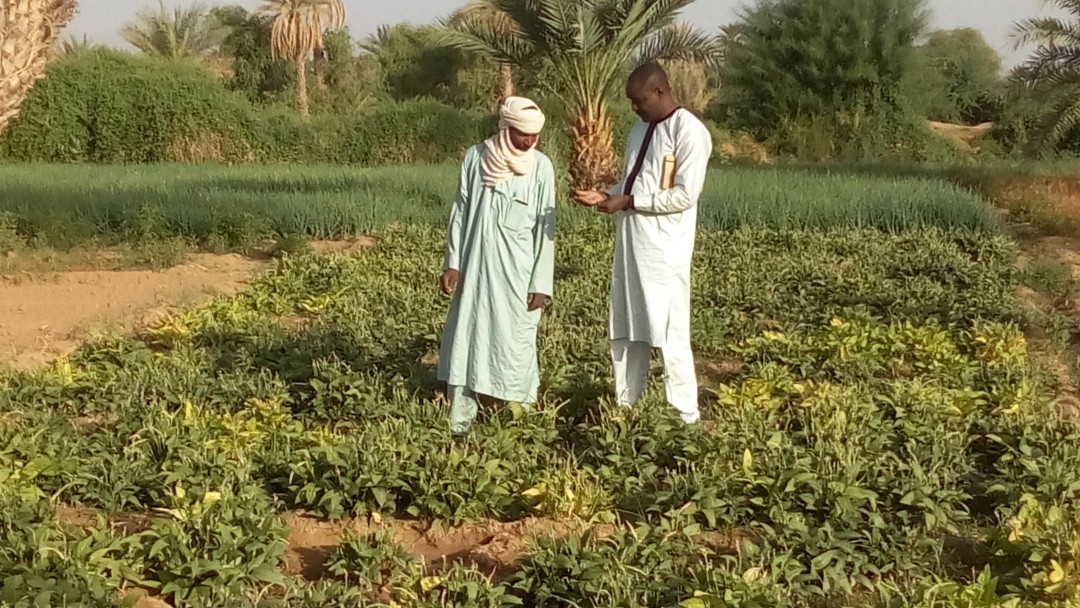
Share page
To share the content of this page with your network, click on one of the icons below.
Note on data protection: When you share content, your personal data is transferred to the selected network.
Data protection
Alternatively, you can also copy the short link: https://www.kfw-entwicklungsbank.de/s/enzBWrMC.CcbA
Copy link Link copied